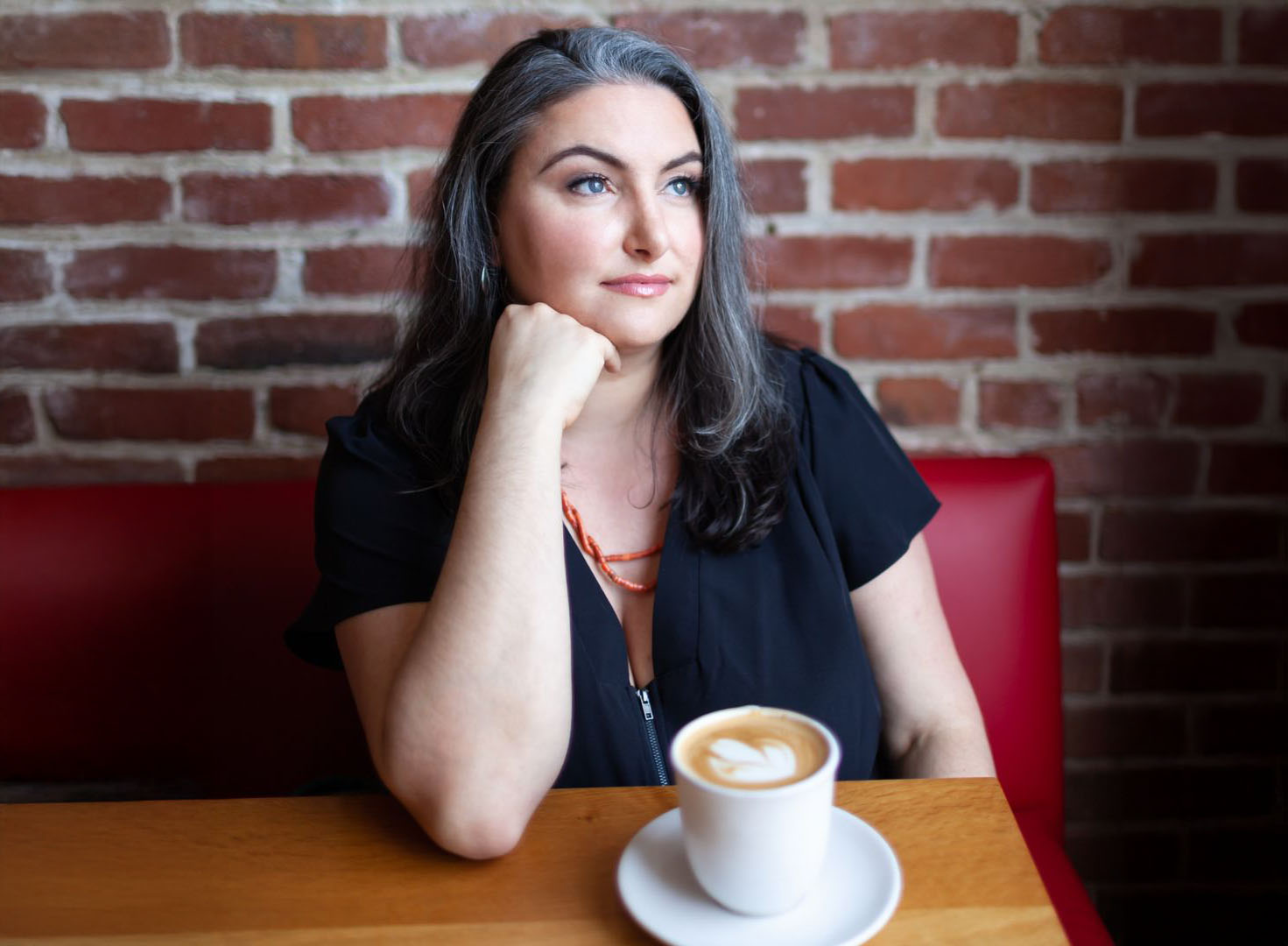
“Until the Last Pickle: A Memoir in 18 Recipes” by Yuliya Patsay began as a project to collect family recipes. When the pandemic hit, Patsay started asking deeper questions about the stories and celebrations that went along with them. The result for this Soviet-born, San Francisco-raised storyteller was a celebration of her past and a legacy for the future.
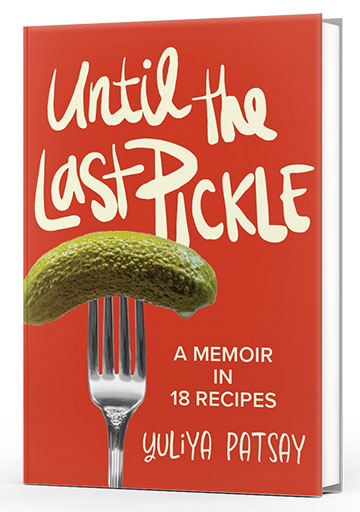 “What this has been about for me is looking at the values that I was raised with – and that came from the former Soviet Union – and what do we want to carry forward in this country and with the next generation,” Patsay told the Journal. “I think one of the biggest, most positive values is the commitment to being with your family and to really spending that time together.
“What this has been about for me is looking at the values that I was raised with – and that came from the former Soviet Union – and what do we want to carry forward in this country and with the next generation,” Patsay told the Journal. “I think one of the biggest, most positive values is the commitment to being with your family and to really spending that time together.
“The other value that you cannot get away from is hospitality,” she continued. “Any time that I go to my family’s house or that anybody comes to my house, hospitality is just baked into everything that we do; we will always offer you a beverage, make you a snack, you know, make you something special.”
The first two recipes Patsay collected were her grandmother’s blinchiki, which is crepes, and her dad’s borscht, a popular Ukrainian soup with beets and cabbage and potatoes.
She also asked them questions like, ‘Where did you learn to cook?’ ‘How did you first start making this?’ and ‘What’s your favorite thing to cook?’
“As I did that, I realized I wanted to talk about my relationship to having grown up in the former Soviet Union and then immigrating to the United States, to San Francisco,” she said. “[It was] a gigantic culture shock, particularly in terms of the food.”
Patsay admitted that, as a child in the former Soviet Union, she wasn’t a tremendous fan of a lot of the foods she ate.
“I didn’t know that it was like Russian food or Eastern European food; it was just food to me,” she said. “I didn’t really gain an appreciation for this type of food until I became a young adult.”
When she started collecting these recipes for the book, Patsay realized what she was really curious about was: ‘Why do we eat the way that we do? Why do we celebrate the way that we do?’
There was a nostalgia of having certain foods at every holiday meal and family gathering. For instance, mashed potatoes and pickled herring were non-negotiable; they were always on the table.
“We celebrate every single birthday, every single wedding anniversary, every single major American holiday, major Jewish holiday, and some former Soviet holidays together,” she said. “So it’s a lot of togetherness and a lot of food.”
In her home, Patsay is more of a sous chef; her husband does almost all the cooking.
“I’ll chop the things, I’ll peel the things, I’ll go to the store and buy the things, but please don’t make me actually fry the things because I’m going to just mess it up,” she said.
One of her favorite, easy recipes is from her mother-in-law. It’s called Sirniki, but is basically fried cheese.
“That’s a hit in the house, especially with the kids,” she said. “It comes with apples, zucchini … and you use farmer’s cheese or cottage cheese … some flour, some eggs, some baking soda, salt and vanilla, sugar is optional, but we usually put sugar in it; sometimes people put raisins in it as well.”
She added, “You grate these things together, you mix it up, you fry them and they become these little very fragrant, delicious little balls of fried cheesy dough.”
The recipe for Sirniki is below.
The other thing that’s baked into the book – and the book’s title – is hospitality.
“A section of my book is called “procurement for the proletariat,” which is all about how we acquired food in the Soviet Union which was tricky,” Patsay said. “As we were going through this, my dad was helping me with a glossary of terms about the pantry and how there’s this untouchable supply in your pantry that you need to have at all times.”
However, he said, if the party’s really going, you feed people until the last pickle.
“That became the title because … it was really about the ethos of hospitality,” she said. “If the party’s really going, you just cut up the last thing in your pantry to contribute to that effort.”
Learn more at YuliyaPatsay.com and subscribe to her Buckle Up Bubelah substack.
For the full conversation, listen to the podcast:
Yelena’s Sneaky Сырники Sirniki
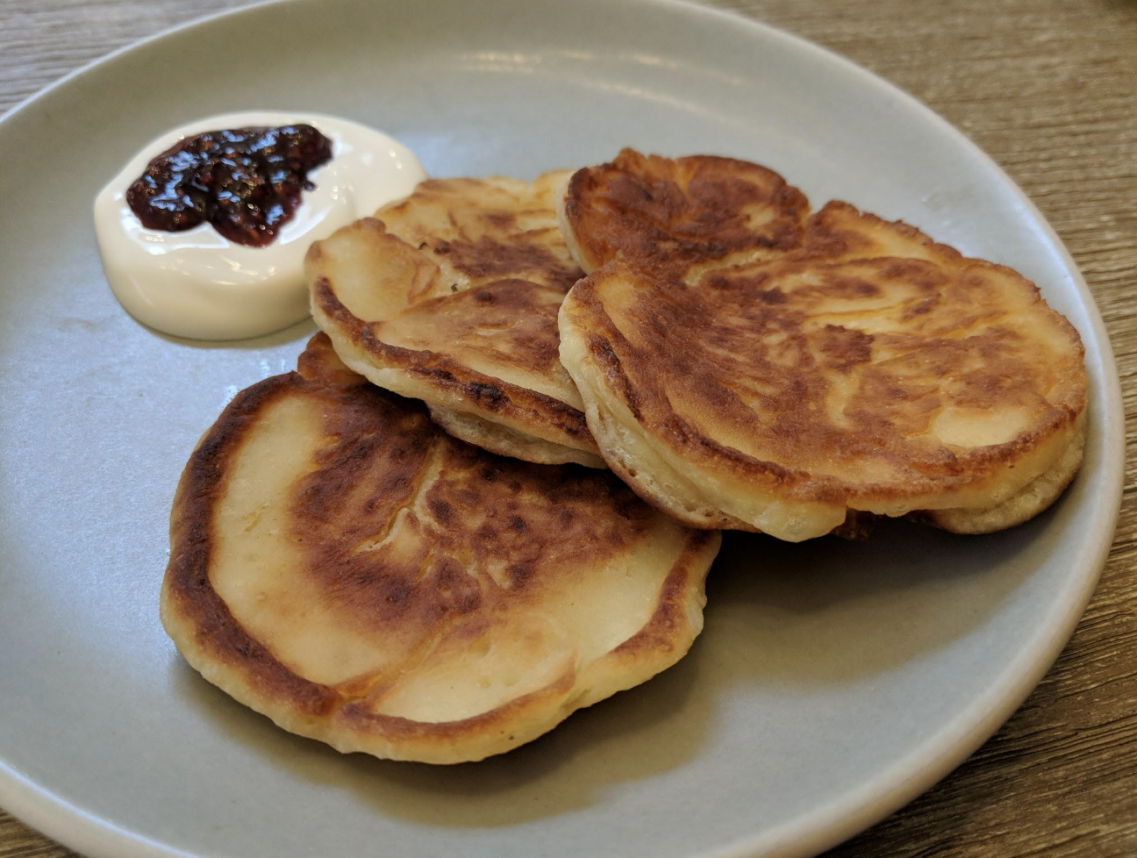
Makes 25 Sirniki, enough for Grandma to feed two children and have enough left over for Mom and Dad, so no one gets mad.
2 granny smith apples (peeled)
2 medium zucchini (peeled)
1 lb farmer’s cheese or cottage cheese
flour (amount and type depends on the type of cheese you are using, if using cottage cheese you can use farina, if using farmer’s cheese, start with ½ a cup of flour and add as needed)
2 eggs
½ tsp baking soda
½ tsp salt
1 tsp vanilla
1-2 tbsp sugar (optional)
Optional: raisins, other dried fruit
Vegetable oil and butter for frying
Finely grate apples and zucchini, and squeeze out the juice.
Combine apples and zucchini with farmer’s cheese, eggs, baking soda, salt, vanilla, sugar, and any optional dried fruit like raisins.
Gradually mix in flour until the batter resembles wet dough.
Use a spoon to scoop the batter directly onto a hot pan greased with vegetable oil and a bit of butter, and fry on both sides.
Serve with jam, sour cream, honey, or your favorite sweet toppings.
Debra Eckerling is a writer for the Jewish Journal and the host of “Taste Buds with Deb.” Subscribe on YouTube or your favorite podcast platform. Email Debra: tastebuds@jewishjournal.com.











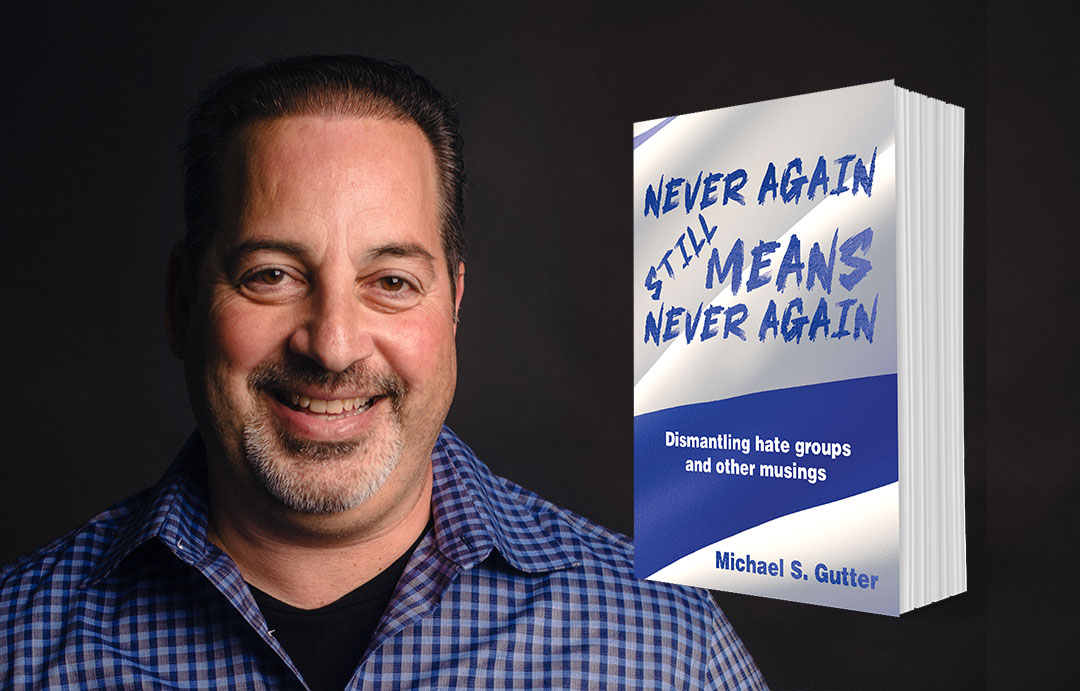
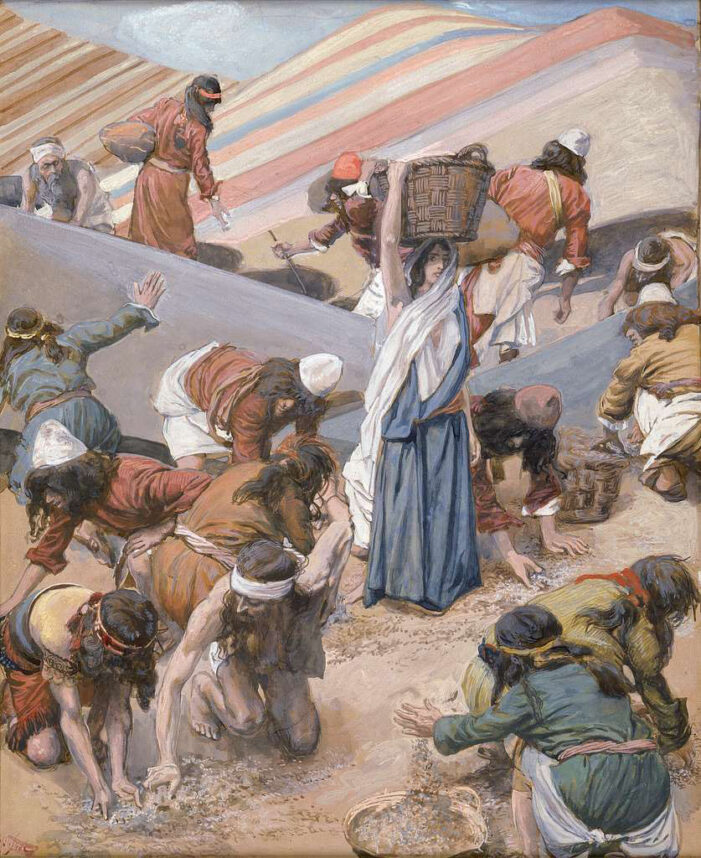
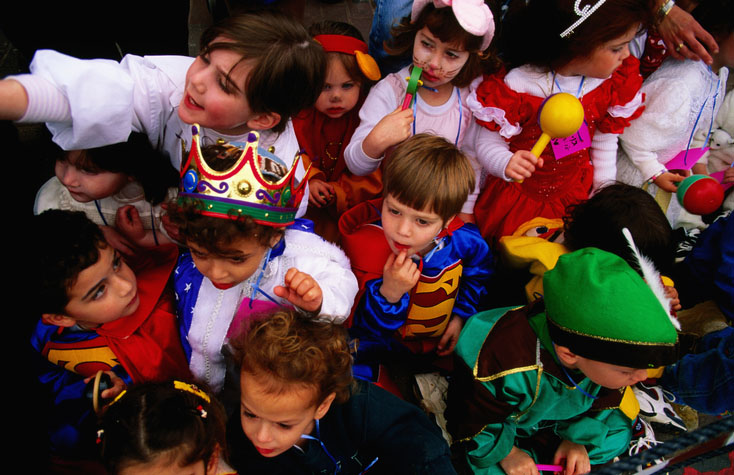


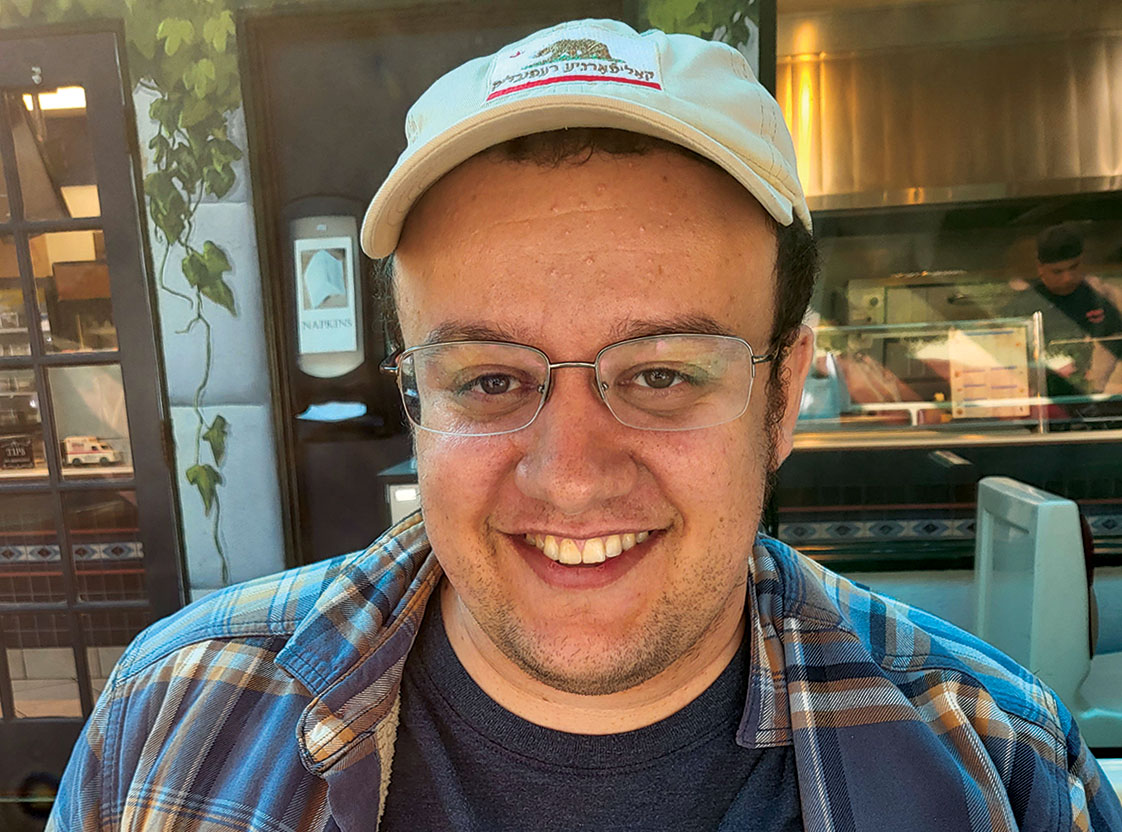





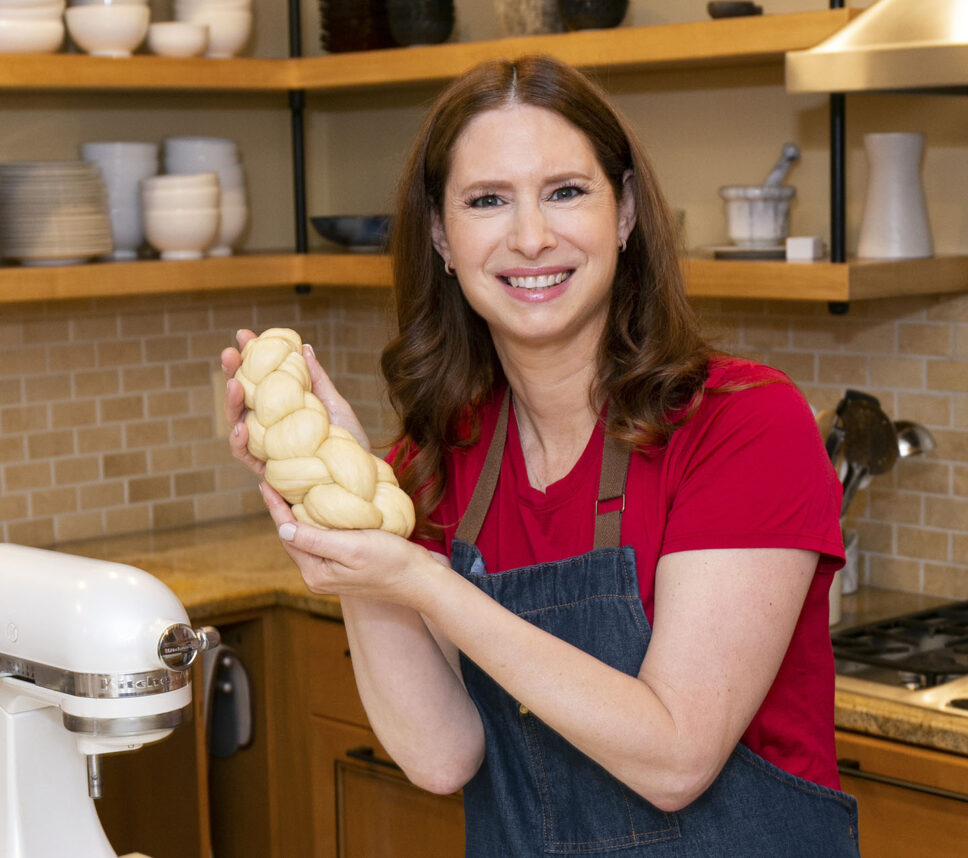

 More news and opinions than at a Shabbat dinner, right in your inbox.
More news and opinions than at a Shabbat dinner, right in your inbox.